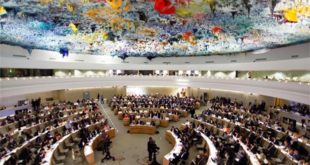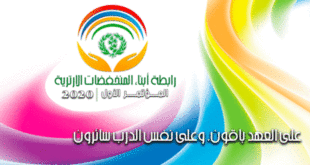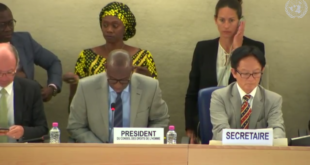BY SAM JONES, PATRICK KINGSLEY, AND MARK ANDERSON
Escaping oppression: An Eritrean refugee preparing a meal outside his shelter in the woods in Calais, France. Unbearable living conditions back home have triggered a growing exodus of Eritreans who hope to find a better life for themselves in Europe. Photo: Reuters
‘If I die at sea, it’s not a problem – at least I won’t be tortured,’ says a Eritrean refugee.
LIKE many of her fellow Eritrean refugees, Sofia, who managed to escape northwards to Cairo, has a very simple reason for fleeing her homeland.
“In Eritrea you’re even afraid to talk to your family,” she says. “The person next to me in a cafe could be a spy, and they are looking at what you are doing. People disappear every day.”
One day, a friend made the innocent mistake of striking up a conversation with a man in a cafe who later turned out to be from the Libyan embassy. “They were just chatting. And they said she was a spy passing information to him. We don’t know what happened to her. She is in jail till now.
“One day they told us she was in hospital with high blood pressure but we were so afraid that we didn’t go because we feared they might arrest us, too.”
This, says Sofia, is the daily reality of life in Eritrea, whose citizens are second only to Syrians when it comes to risking dangerous crossings of the Mediterranean in search of a better life in Europe.
According to the United Nations High Commissioner for Refugees (UNHCR), nearly 37,000 Eritreans applied for asylum in 38 European countries over the first 10 months of last year, compared with about 13,000 in the same period in 2013. It puts the total Eritrean refugee population at more than 321,000.
The reasons for the exodus are not hard to fathom: last month, a UN inquiry accused the government of President Isaias Afewerki – who has ruled the east African country since its independence from Ethiopia in 1993 – of operating a system of “ruthless repression” and “pervasive state control”.
The chair of the inquiry, Mike Smith, noted a culture of “extra-judicial executions, enforced disappearances and incommunicado detentions,” all aimed at silencing critics of the regime.
Given the climate of repression, violence and paranoia – and the indefinite national service – asked Smith, “Is it surprising that faced with such challenges, Eritreans leave their country in their hundreds every day?”
The Eritrean government responded to the inquiry by criticising its reporting methods. Tesfamicael Gerahtu, an Eritrean diplomat, said his delegation was dismayed at “the protracted reliance on unreliable, unproven and sensational information and interactions,” adding that “preconceived ideas and conclusions” about Eritrea had become rampant.
Others bitterly disagree. Elsa Chyrum, director of the Britain-based group Human Rights Concern – Eritrea, sums up her homeland in two words: open prison. “There’s no freedom of speech, no freedom of expression, no religious freedom,” she says.
“We have more than 300 prisons across the country and people there have no food to eat. Even begging is criminalised in Eritrea.”
But equally pernicious, says Chyrum, is the national service that sees 17-year-old students taken from their families and pressed into unending conscription. Some work up to 12 hours a day, six days a week; the less fortunate are sent to work in mines without basic protective equipment.
“Many children are brought up without their fathers because their fathers are tied up in conscription for life,” she says. “The whole family unit is completely broken. You see all the unaccompanied children leaving because they don’t want to have a miserable life like their fathers and brothers, so what do they do? They run away. Everybody is running away.”
Smugglers
Meron Estefanos, another Eritrean human rights activist, says those Eritreans with enough money are paying senior government officials up to US$5,000 (RM18,000) each to leave. Once over the border into Sudan, people smugglers take them by pick-up truck to Libya, where they look for boats to Europe.
Most hope to reach Sweden or Norway. Israel – where about 42,000 Eritrean and Sudanese nationals are believed to reside – recently announced that it would begin deporting asylum seekers from the two countries to other African nations.
“It’s absurd that Israel doesn’t recognise Eritreans as refugees,” says Estafanos. “They are deporting refugees to Rwanda, where they have no rights. They are being given letters that say they will be granted asylum and work permits in Rwanda and that it’s a great place to live. But as soon as they arrive in Rwanda their documents are being taken away and they have only one or two days before the same people who picked them up from the airport are smuggling the Eritreans out of Rwanda and into Uganda and then God knows what happens.”
But even those who, like Sofia, have made it as far as Cairo do not feel safe. Deportations have been recorded from Sudan and Egypt, meaning that in Cairo – where Eritreans are barred from the state education system and face few job prospects – refugees feel vulnerable.
Despite the risks of deportation, Sofia does not want to risk travelling to Europe by sea. She does, however, understand what drives her compatriots to climb aboard the crowded and dangerous vessels that ply their trade between Libya and the coast of Europe.
“If you want to register for resettlement with UNHCR, they give you an appointment for 2017,” she says. “And who can afford to wait that long? It’s better to go by boat. I have two choices – one is to die, the other is to live. If I die at sea, it won’t be a problem – at least I won’t be tortured.
“Here you don’t have a destiny – you don’t have education, no work, you can’t help your family. Every day you’re just asking for help. But if you go to Europe at least at some point in the future, you will have a nationality and you will be a human.’
Desperation
That desperation is echoed by Eritreans who are being held in a Tripoli detention centre after being intercepted at sea by Libyan coastguards.
“It is not our choice to penetrate the sea,” says Bayin Keflemekal, a 30-year-old nurse. “If we got some help from the Libyan government, from UNHCR, we would try something else. But if the government won’t help us, if UNHCR won’t help us, if no one can help us, then the only option is to go to the smugglers. We are suspended in the air.’
Chyrum hopes the deaths of at least 800 people who perished when their boat capsized off the coast of Libya two Sundays ago, will compel European leaders to rethink their approach to Eritrea. She is fiercely critical of the EU’s recent decision to try to halt the exodus of Eritreans by sending development aid to the country, arguing that the money will stay in the hands of the political elite.
Chyrum says the European funds would be better spent on helping the thousands of Eritreans already in southern Europe or expanding the EU’s Frontex border control agency.
If Europe is serious about reducing the flow of people from Eritrea, she says, it needs to use its political, diplomatic and financial influence to bring about change in Asmara.
“Unless the root cause is dealt with, people will keep taking risks,” she says. “A lot of pressure needs to be put on the government of Eritrea to stop the indefinite national service, to make life bearable for people and to allow them to live a free life. They have to release all the prisoners of conscience from prison and allow people to choose what they want to do in life.”
Unless tough action is taken against the Isaias regime, she says, the government will continue acting with impunity, and Eritreans will continue making the long trek north, and fishermen and coastguards will continue fishing bodies from European waters.
“It’s a one-person rule, but one person has destroyed the whole country,” says Chyrum. “The future of Eritrea is fleeing and drowning in the Mediterranean.” – Guardian
Source:The Guardian
 ELL Eritrean Lowland League
ELL Eritrean Lowland League




